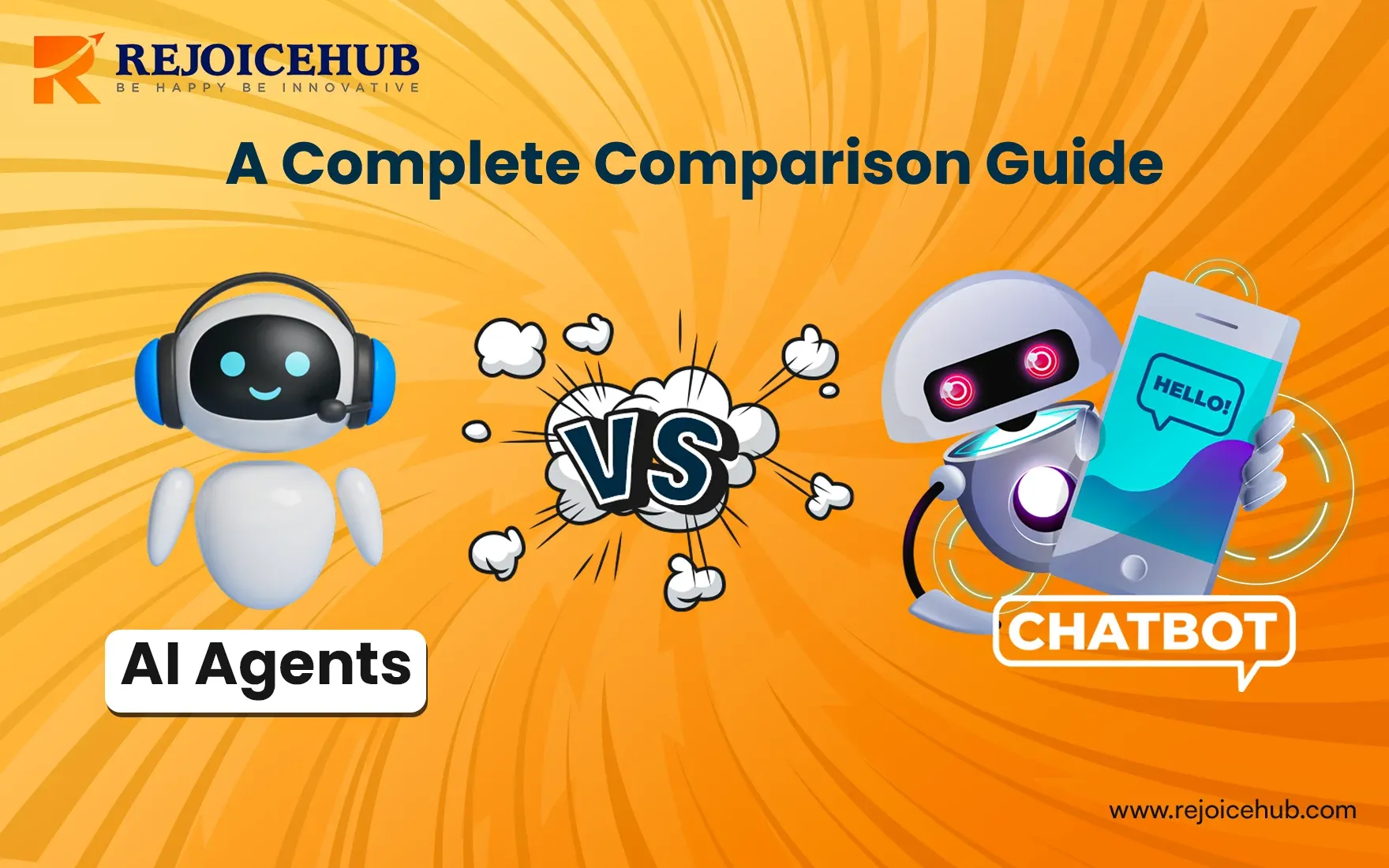
Conversational AI has grown in popularity over the past few years. Whether you're using Alexa to ask the weather or chatting about banking, almost all of us interact with these technologies daily. Even after so much advancement, many people remain confused whether AI chatbots and AI agents are the same or different. Two years ago, when I used an AI Chatbot and an AI Agent, I thought that both were similar, but later I realized that the use cases and working algorithms of both are quite different; in fact, both of them use natural language processing to automate routine tasks.
But the underlying technology, depth of intelligence, and business impact of both of them are quite different, so if you run a business or work with AI solutions, then it is very important that you understand the differences between them in detail. Because without understanding both systems, you won't be able to choose the right tool, and only with the right tool will you achieve customer engagement, internal automation, and long-term growth.
So, let's understand AI agents or chatbots in detail so you can use them in your profession or business.
Quick Summary
As we know, Chatbots follow a fixed path to handle structured inputs. Mostly, Chatbots are used for FAQs, basic support, and scripted tasks. The main reason for the increased use of Chatbots is that they are quite cheap.
The AI agents we see in 2025 will work autonomously as a system, for which they use large language models (LLMs) and advanced reasoning. And these AI agents will keep increasing their self-learning in every interaction. This is why AI agents can easily solve complex problems.
You can think of chatbots as a kind of vending machine that only displays predictable or fixed options, or you can think of AI agents like Alexa, which can handle trillions of activities.
Our focus in this article:
1. What are AI agents or chatbots?
2. What is the difference between agents and chatbots, and how do they work?
3. How AI Agents or Chatbots can be used for businesses.
What is an AI Chatbot?
AI chatbots are essentially computer programs that use predefined rules, decision trees, and scripted responses to simulate conversations with users. Early chatbots were based on ELIZA (1964), and this is what allowed modern chatbots to evolve. Modern chatbots also use Natural Language Processing (NLP) in a limited form.
Many chatbots available today require proper training to build them, so they can have a natural conversation with a specific user. Modern chatbots can handle conversation flows naturally. However, there are also some chatbots that can only perform a limited number of tasks. The main reason behind this is that they follow a set of scripts; they are much better at learning about reliable information, and they are mostly used for tracking, basic troubleshooting, or answering common customer questions.
But these chatbots struggle with context and cannot handle questions outside their programmed boundaries.
Use Cases of AI Chatbots
Chatbots are everywhere in today's modern world. 987 million users are expected to use chatbots in 2025, giving us an idea of their widespread use cases.

- Basic IT support: Chatbots are used for a variety of IT support tasks today, such as resetting passwords, checking server status, or simply guiding users through simple technical steps on how to use software.
- Restaurant reservations: Chatbots are widely used in hotel and restaurant systems and applications for various tasks, such as booking tickets, confirming timings, or automatically sharing menus with customers.
- Customer service FAQs: Chatbots are most commonly used today to answer basic questions, whether it's guiding customers about basic policies, informing them about product specifications, or notifying customers about billing details, all without human intervention.
Due to all these uses, the operational costs of the companies are reduced significantly and many human employee agents are also freed up so that they can handle complex tasks.
Real-World Examples of AI Chatbots
Let us understand in detail how to use Chatbots through real-world scenarios. This will also give you some basic Chatbot usage ideas.
- H&M's Mobile Application: It is a virtual stylist, recommending outfits, sizes, and colours based on browsing history, past purchases, and personal preferences, allowing customers to shop more privately as well as conveniently. Based on browsing history as well as previous purchases, the chatbot of H&M provides a more customized shopping experience, which, besides increasing customer satisfaction, also generates stronger sales conversion.

- Replika: Mostly Chatbots is an AI companion that engages in natural chat, provides emotional support, and assists users in fighting loneliness or simply to converse casually. This gives the indication that AI chatbots are transforming beyond transactional purposes into emotionally smart partners that build connections as well as mental well-being.
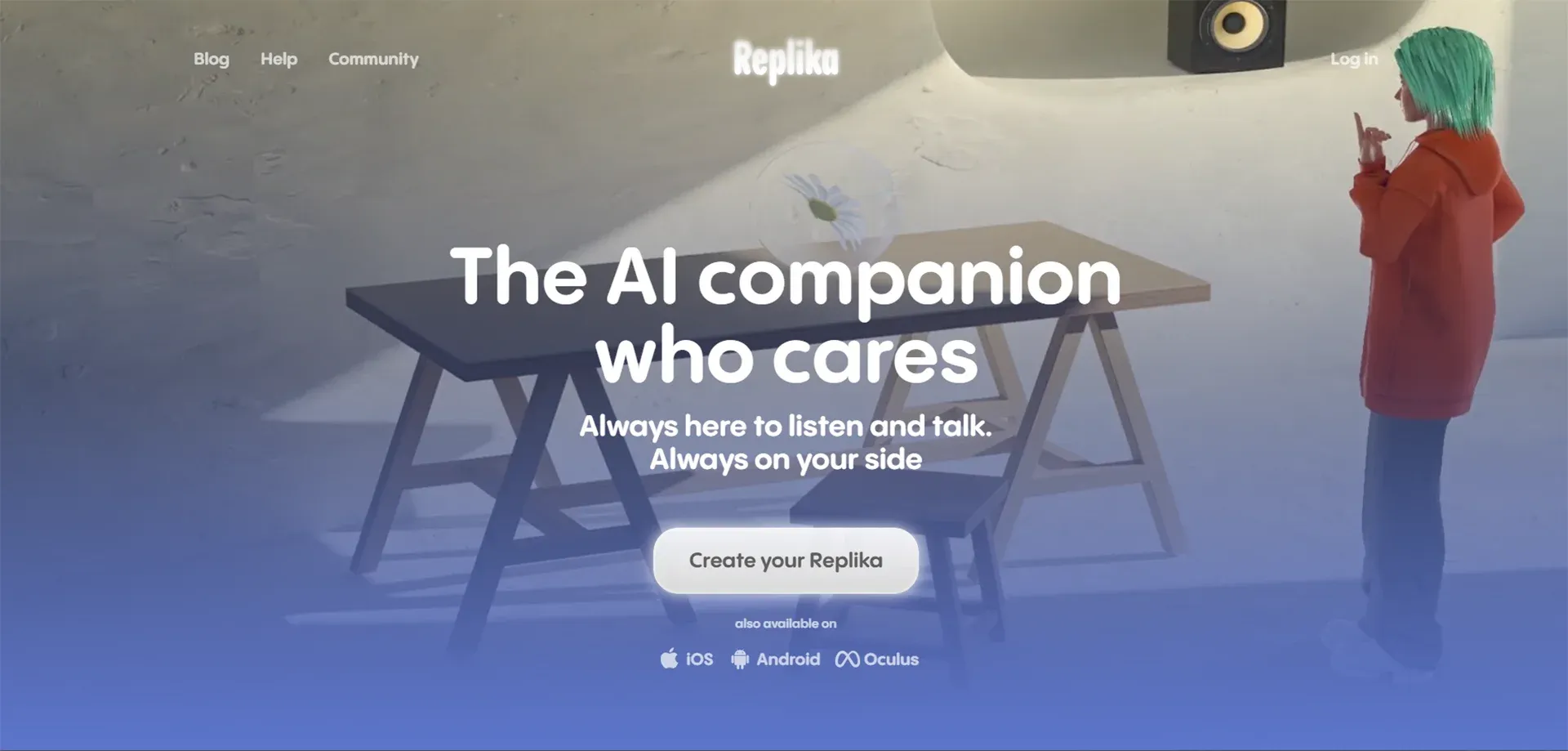
- Duolingo Max: Their chatbots offer role-play scenarios interactively to language learners, allowing them to rehearse everyday conversations and gain confidence speaking a new language. Duolingo Max gives the learning process a fast track, making language acquisition both easy and pragmatic.
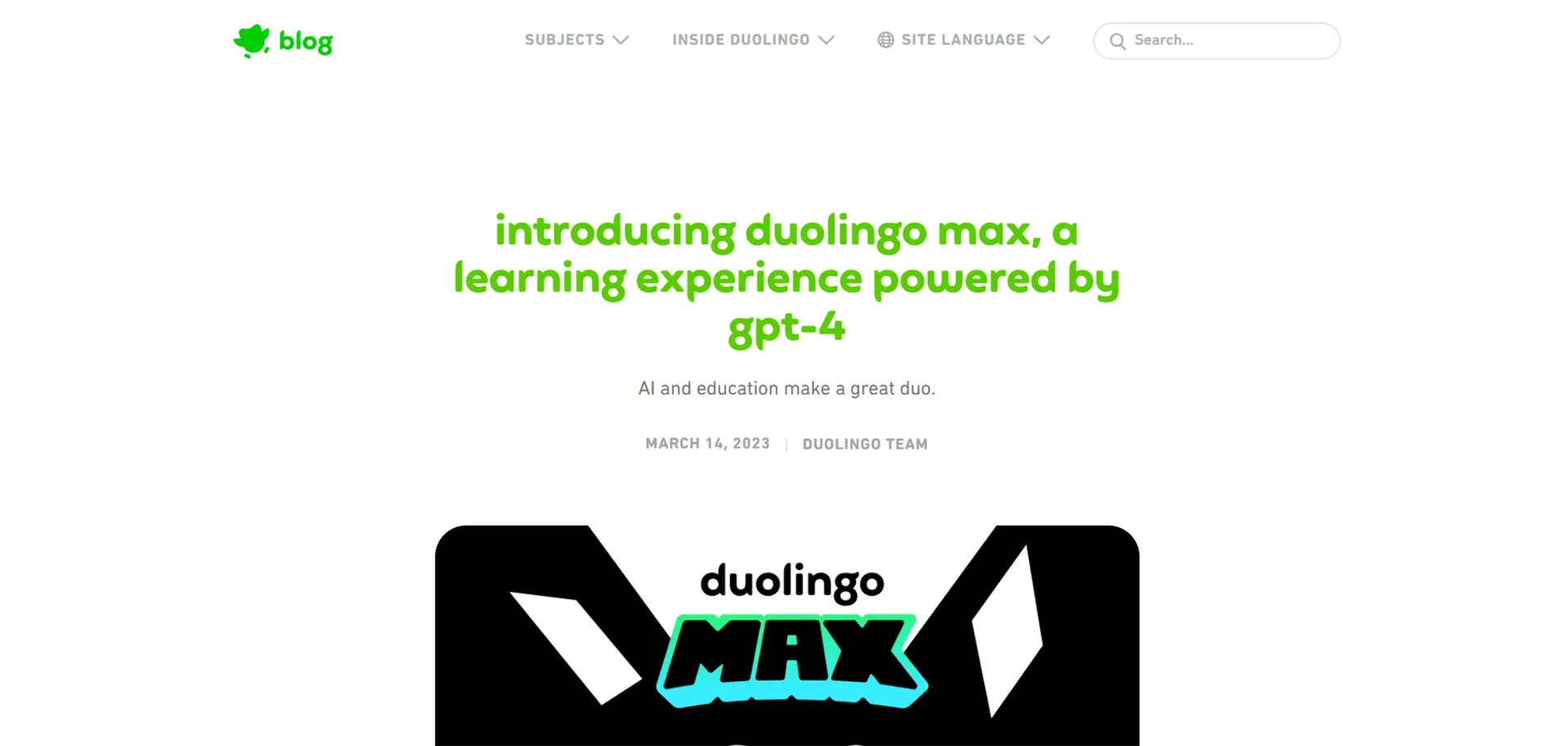
These examples give us a lot of ideas and examples of how chatbots are used in the real world, and how you can eventually use them in your business for different practical assistance or customer support.
What is an AI Agent?
Many experts also call the AI agents of 2025 autonomous agents, as they possess significantly greater capabilities than traditional agents. AI agents are built on large language models (LLMs) and are often trained based on a company's unique data and working needs, so they can perform a role similar to a professional employee. AI agents can also reason, analyze, or act autonomously. Furthermore, they can easily handle both structured and unstructured data.
AI agents, instead of simply responding, first understand complex requests and then analyse them from vast data sets, even from past interactions, to find the query and, after proper processing, provide flexible results to the user. This makes them powerful digital collaborators, with capabilities that can easily enhance productivity and decision-making.
Top companies like Anthropic, Amazon, and IBM are conducting extensive research on AI agents to further evolve them or make them accessible to small businesses globally.
Use Cases of AI Agents
Let us know why agents are used in today's business operations and what are its major cases.

- Automated curation of content: AI agents automatically browse various sources, sift through pertinent facts, and produce personalized newsletters or marketing materials without any human exertion.
- Career development officer: Based on employee performance metrics as well as skills gaps, the officers recommend customized improvement plans as well as training routes.
- Clever supply chain management: They monitor the logistics data live, forecast potential delays, and automatically minimise the inventory to trim the wasteful expenditure as well as optimise the working.
These cases illustrate that AI agents learn to cope with changing environments where the choices cannot be pre-programmed.
Real-World Examples of AI Agents
AI agents are still in the evolving stage, but are being used extensively in many business operations, Tesla's autonomous cars being one of them, where AI agents are used.

- Sender: Mostly AI agents utilise scaled large language models (LLMs) to automatically and personally send email campaigns at scale, benefitting time-wise as well as improving engagement.
- MultiOn: MultiOn is also a multi-step personal assistant that can handle high-order online tasks, ranging from arranging services to working on workflows. You can call MultiOn a kind of multi-function system.
- HostAI: Some of the popular Chatbots are used to assist Airbnb hosting priorities by auto-managing properties, auto-deciding guests, auto-responding to guests, auto-managing bookings, auto-accepting, and many other tasks.
These solutions depict the ways AI Agents permeate workflows to provide tangible, concrete business value.
What Are the Differences Between an AI Chatbot and an AI Agent?
As we already know, AI agents can handle everything from autonomous to simple conversations, while chatbots can only handle repetitive tasks. The functionality, capabilities, and design of both differ significantly. Let's understand this in detail.
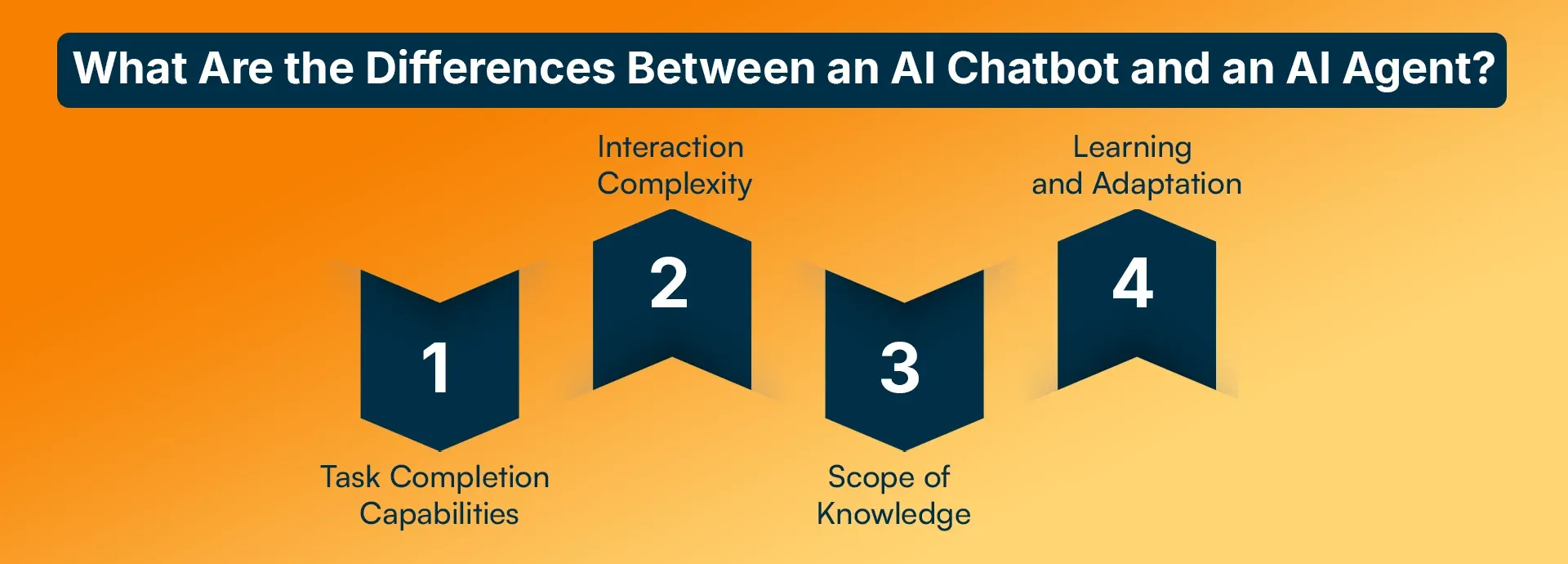
1. Task Completion Capabilities
Chatbots operate based on fixed scripts and rules. They are excellent for handling repetitive tasks, but they cannot work as effectively for unstructured queries.
Also, AI agents can reason and provide flexible answers based on the company's relevant data. Rather, AI agents can perform multi-step tasks like generating reports or making decisions more effectively.
2. Interaction Complexity
Chatbots can provide simple answers, and their interactions are fairly linear.
However, AI agents can easily handle context-aware, nuanced dialogues and can easily maintain the continuity of long conversations. For this reason, AI agents are used in banks and the financial sector for flexibility.
3. Scope of Knowledge
Chatbots rely on a limited training set.
And AI agents use LLMs to handle structured databases, PDFs, emails, or chat logs for richer, data-driven responses, which is why AI agents are most commonly used in the academic sector.
4. Learning and Adaptation
Traditional chatbots rarely learn from user interactions or real-time data.
Most AI agents are able to continuously learn and adapt, improving their accuracy and personalization over time, making older AI agents more advanced.
To put it simply, you can use chatbots for predictability or repetitive tasks and prefer AI agents for dynamic, evolving environments.
Features of AI Chatbot and AI Agent
Let's learn about the major features of AI agents or AI chatbots.
1. Chatbots use decision based systems, while AI agents use basic NLP and large language models for autonomous reasoning.
2. Chatbots lack learning capabilities; they cannot continuously learn and adapt, but AI agents can learn from past interactions and real-time data.
3. Chatbots use fixed data sources and predefined scripts, while AI agents can easily handle unstructured company data.
4. The interaction style of AI chatbots is linear, while the workflow of AI agents is context-aware and dynamic.
5. Chatbots are ideal for FAQs and basic IT support, but for complex analytics and personalised automation, AI agents are best.
6. Chatbots are relatively inexpensive to operate and deploy, while AI agents are costly to deploy, but have a good long-term ROI.
How to Choose Between an AI Chatbot and an AI Agent?
Choosing the right AI solution depends on many factors. Let's explore several that are crucial.
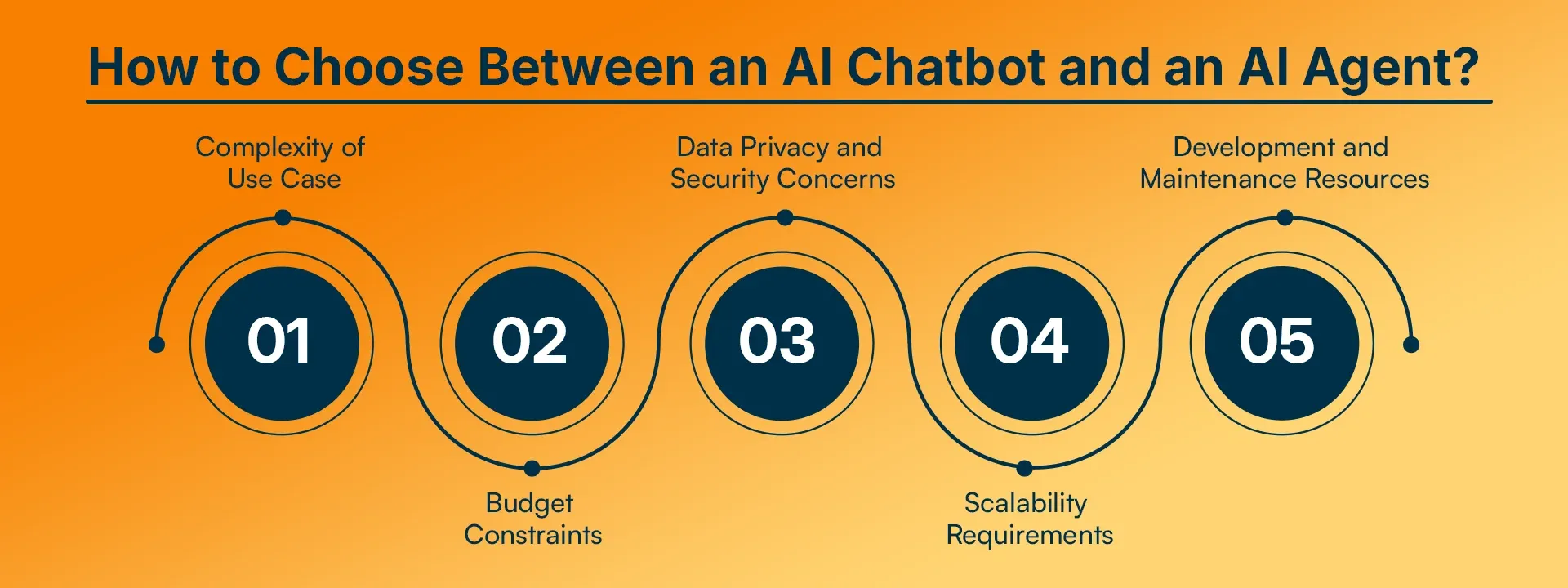
-
Complexity of Use Case: If your needs are simple and repetitive, such as handling FAQs, you should choose chatbots as they are more cost-effective. If such tasks require contextual reasoning, you should choose AI agents.
-
Budget Constraints: As we know, deploying and maintaining chatbots is much cheaper compared to AI agents. While AI agents require more resources to deploy, they also have the potential to yield greater long-term ROI.
-
Data Privacy and Security Concerns: If you require systems that involve your company's sensitive data, choose AI agents that adhere to privacy regulations and robust security protocols.
-
Scalability Requirements: AI agents are a better option for scaling complex operations, but chatbots can handle repetitive tasks at high volumes. For simple, straightforward queries, you may prefer AI chatbots.
-
Development and Maintenance Resources: Before integrating AI Chatbots or Agents, it is important to ensure that you have sufficient resources and workforce available to manage the Chatbots or AI Agents so that your different operations can be performed smoothly, and integration and training can be done perfectly.
Comparison of Chatbots vs AI Agents
Let us understand chatbots and agents in different parameters. This will give you a better idea about both.
| Aspect | AI Chatbots | AI Agents |
|---|---|---|
| Core Technology | Rules, decision trees, basic Natural Language Processing (NLP) | Large Language Models (LLMs) with autonomous reasoning |
| Learning Ability | Little to no self-learning; relies on pre-programmed responses | Continuously learns and adapts from interactions and data |
| Data Access | Limited to predefined datasets and scripts | Can pull insights from structured & unstructured company data |
| Interaction Style | Linear, scripted conversations | Context-aware, dynamic, and multi-step dialogues |
| Complexity of Tasks | Best for simple, repetitive tasks such as FAQs or password resets | Handles complex problem-solving and decision-making |
| Deployment & Cost | Quick to deploy, low cost | Requires more resources and budget, but offers higher ROI |
| Ideal Use Cases | Customer service FAQs, IT support, and booking/reservations | Automated analytics, supply chain optimization, personalized recommendations |
Will AI Agents Replace Chatbots?
In 2025, AI agents are evolving rapidly, and as they improve, their contextual understanding will also enhance. Multimodal interactions and generative AI capabilities in AI agents will expand, further expanding various roles across industries.
However, chatbots will not completely disappear in the future, as wherever brands face customer support problems, they will use rule-based bots for critical messaging control. I believe the future will be largely hybrid, with companies using chatbots for predictable tasks and deploying AI agents for complex tasks, which are high-value tasks.
Conclusion
As we've learned, both AI chatbots and AI agents are part of the conversational AI family. They each have different roles and are trained quite differently.
Chatbots are best suited for fast, scripted interactions, saving companies significant costs and time on repetitive tasks. Agents today provide businesses with adaptive intelligence for complex tasks.
Therefore, businesses should choose Chatbots or AI agents according to their specific goals. You can also make your choice based on budget and data privacy needs. For this, you can take help from IT firms like RejoiceHub, which can help you a lot in finalising the deployment of AI Chatbots or AI agents.
My Recommendation: Initially, you should start with basic Chatbots. For this, you can follow a hybrid approach. This will help you in customer support and improve your employee experience. After the successful ROI of Chatbots, you can also choose AI agents.
Frequently Asked Questions
1. Can an AI agent function without large language models?
An AI agent cannot function effectively without the use of large language models, as LLMs help AI agents reason and understand. Basic chatbots lack reasoning and flexibility.
2. Are AI chatbots cheaper than AI agents?
Yes, absolutely. Chatbots cost less to build because they require simpler infrastructure. This is why businesses use AI chatbots for simpler tasks.
3. How do AI agents learn from interactions?
Most modern AI agents track user behavior and feedback throughout each conversation to better understand the user and provide more personalized results the next time around.
4. Is it possible to convert a chatbot into an AI agent?
While this is quite possible, it just requires an expert team that integrates LLMs and machine learning into AI chatbots, giving them autonomous decision-making features.
5. Which is better for customer support: a chatbot or an AI agent?
If your operation involves high-volume FAQs, you may prefer a chatbot. For personalised, context-rich support, you may choose AI agents, as they can also solve complex troubleshooting issues.
6. Do AI agents pose higher security risks?
They can, if not properly configured, because they often contain sensitive company data. Additionally, robust authentication and encryption are essential.
7. Will AI agents eventually replace human support staff?
I suspect that AI agents will never completely replace human staff, as even though AI agents can handle complex automation, human experience will remain crucial for important tasks or decision-making.
